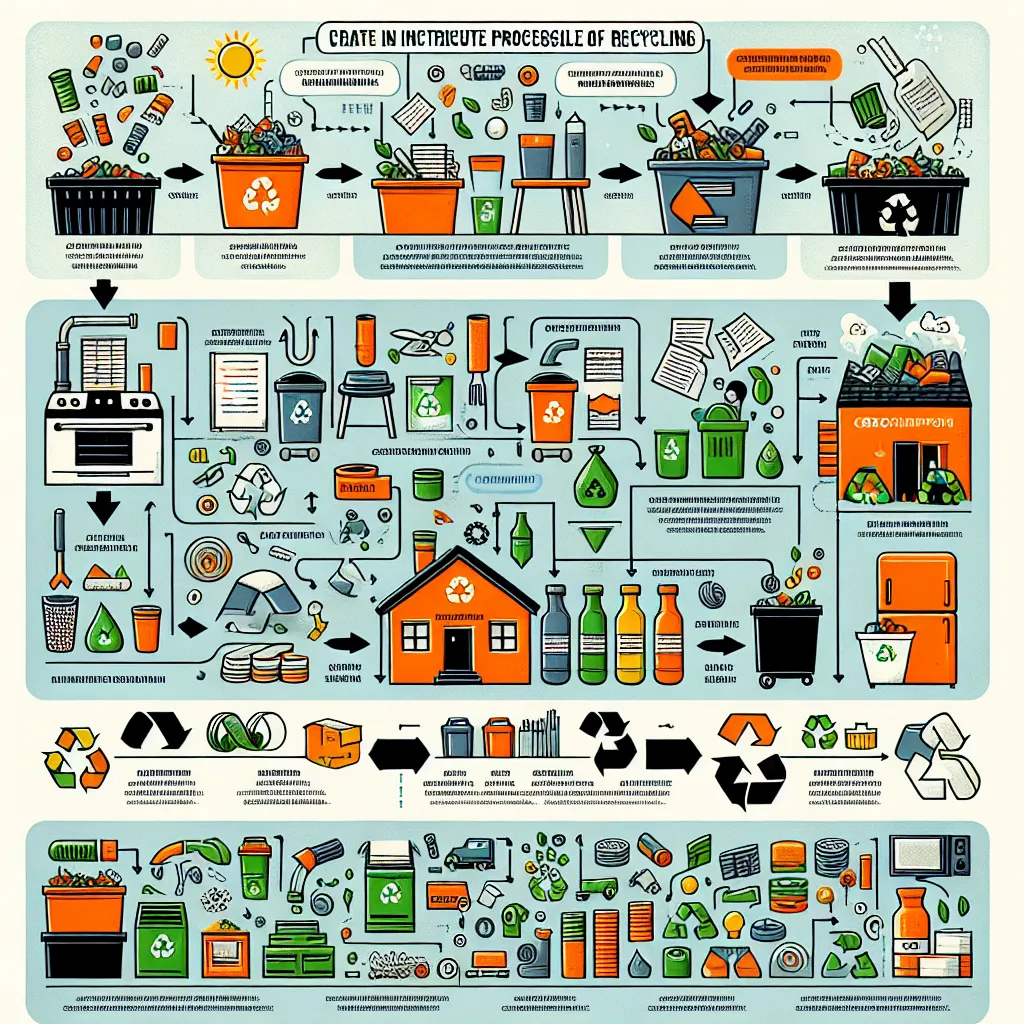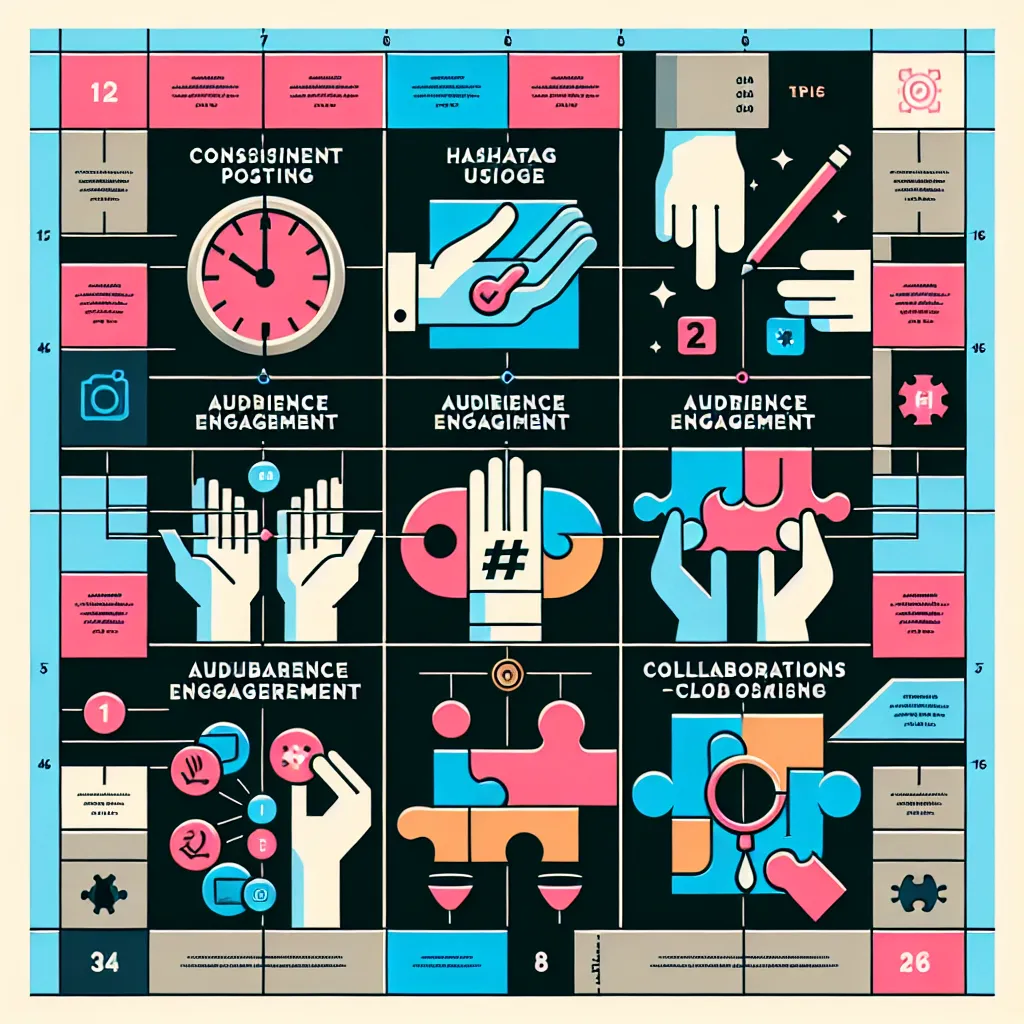The IELTS Reading section is a crucial component of the test, requiring candidates to demonstrate their ability to understand complex texts and extract relevant information. Today, we’ll focus on a topic that has become increasingly important in recent years: how to reduce household waste through recycling. This subject has appeared in various forms in past IELTS exams and, given its growing significance in environmental discussions, is likely to resurface in future tests.
Nội dung bài viết
Based on an analysis of past IELTS Reading passages, environmental topics, particularly those related to waste management and sustainability, have shown a consistent presence. The frequency of such themes suggests a high probability of encountering similar content in upcoming exams. Let’s dive into a practice passage that mirrors the style and complexity you might encounter in the actual IELTS Reading test.
Reading Passage
Reducing Household Waste: The Recycling Revolution
A) In recent years, the global community has become increasingly aware of the environmental challenges posed by excessive waste production. Among the various strategies proposed to address this issue, recycling has emerged as a frontrunner in the battle against household waste. This method not only helps to reduce the volume of waste sent to landfills but also conserves natural resources and energy.
B) The concept of recycling is not new; it has been practiced in various forms for centuries. However, the modern recycling movement gained significant momentum in the late 20th century as environmental concerns came to the forefront of public consciousness. Today, recycling is a cornerstone of waste management strategies in many countries, with governments and local authorities implementing comprehensive recycling programs.
C) At the household level, effective recycling begins with proper waste sorting. This involves separating recyclable materials such as paper, plastic, glass, and metal from non-recyclable waste. Many municipalities provide separate bins for different types of recyclables, making it easier for residents to sort their waste correctly. Some communities have even introduced advanced sorting systems that use technology to separate mixed recyclables, although the effectiveness of these systems often depends on the cleanliness and proper preparation of the materials by households.
D) Paper recycling is one of the most successful forms of household recycling. It significantly reduces the need for virgin wood pulp, thereby helping to conserve forests. The process involves collecting used paper products, sorting them by grade, and then processing them into new paper products. Interestingly, paper can be recycled several times before the fibers become too short for further use.
E) Plastic recycling, while more challenging due to the variety of plastic types, is crucial in reducing environmental pollution. Not all plastics are recyclable, and those that are often require different recycling processes. For instance, PET (polyethylene terephthalate) bottles are commonly recycled into new bottles or polyester fibers for clothing, while HDPE (high-density polyethylene) from milk jugs can be transformed into plastic lumber or new containers.
F) Glass and metal recycling are particularly efficient processes. Glass can be recycled indefinitely without loss of quality, and recycling it uses less energy than producing new glass from raw materials. Similarly, recycling aluminum cans uses significantly less energy than producing new cans from bauxite ore, making it one of the most environmentally beneficial recycling processes.
G) Despite the clear benefits of recycling, challenges remain. Contamination of recyclable materials with food residue or non-recyclable items can render entire batches unsuitable for recycling. Additionally, the global market for recycled materials fluctuates, sometimes making it economically challenging for recycling programs to operate effectively.
H) To maximize the impact of household recycling, experts recommend a combination of strategies. These include reducing overall consumption, reusing items where possible, and ensuring that recyclable items are clean and properly sorted. Education plays a crucial role in this process, as many people are unaware of the correct recycling procedures or the importance of their individual contributions.
I) Innovative approaches to recycling are continually emerging. Some communities have introduced incentive programs, where households receive rewards for recycling. Others are exploring ways to turn non-recyclable waste into energy through processes like anaerobic digestion or incineration with energy recovery.
J) As the world grapples with the growing waste crisis, the importance of household recycling cannot be overstated. While it is not a panacea for all waste-related issues, it is a vital component of a comprehensive waste reduction strategy. By embracing recycling and other waste reduction methods, households can play a significant role in creating a more sustainable future.
 Household recycling process
Household recycling process
Questions
Multiple Choice
-
Which of the following is NOT mentioned as a benefit of recycling in the passage?
A) Reduction of waste sent to landfills
B) Conservation of natural resources
C) Increase in job opportunities
D) Energy conservation -
According to the passage, what is a challenge faced by recycling programs?
A) Lack of government support
B) Insufficient technology
C) Fluctuations in the global market for recycled materials
D) Limited public participation -
Which material can be recycled indefinitely without loss of quality?
A) Paper
B) Plastic
C) Glass
D) Metal
True/False/Not Given
- Modern recycling movement gained popularity in the early 21st century.
- All types of plastic can be recycled using the same process.
- Recycling aluminum cans is more energy-efficient than producing new ones from raw materials.
- Household recycling alone can solve all waste-related environmental issues.
Matching Information
Match the following statements (8-12) with the correct paragraph (A-J).
- The concept of recycling has existed for a long time.
- Contamination can make recyclable materials unsuitable for processing.
- Some communities offer rewards for recycling.
- Paper can be recycled multiple times before it becomes unusable.
- Proper waste sorting is crucial for effective household recycling.
Summary Completion
Complete the summary below using words from the box.
WORDS
education incentives consumption technologies contamination
strategies materials energy markets sorting
Effective household recycling involves several key 13)__. Proper waste 14)__ is essential, as is reducing overall 15)__. Experts also emphasize the importance of 16)__ in teaching people about correct recycling procedures. Some communities are implementing 17)__ programs to encourage recycling. However, challenges such as 18)__ of recyclables and fluctuating global 19)__ for recycled materials persist. Despite these obstacles, recycling remains a crucial method for conserving natural resources and 20)__.
Answer Key
- C
- C
- C
- False
- False
- True
- False
- B
- G
- I
- D
- C
- strategies
- sorting
- consumption
- education
- incentives
- contamination
- markets
- energy
Detailed Explanations
-
C is correct because job creation is not mentioned as a benefit of recycling in the passage. The text mentions reducing landfill waste, conserving resources, and saving energy, but not job opportunities.
-
C is correct. Paragraph G states, “the global market for recycled materials fluctuates, sometimes making it economically challenging for recycling programs to operate effectively.”
-
C is correct. Paragraph F mentions, “Glass can be recycled indefinitely without loss of quality.”
-
False. Paragraph B states that the modern recycling movement gained momentum in the late 20th century, not the early 21st century.
-
False. Paragraph E mentions that different types of plastic require different recycling processes.
-
True. Paragraph F states, “recycling aluminum cans uses significantly less energy than producing new cans from bauxite ore.”
-
False. Paragraph J indicates that while household recycling is important, it is “not a panacea for all waste-related issues.”
8-12. These answers can be found in the corresponding paragraphs as indicated.
13-20. The answers for the summary completion can be found throughout the passage, matching the context of each sentence with the appropriate word from the box.
Common Mistakes
- Misreading dates or time periods in the passage, leading to incorrect True/False answers.
- Overlooking specific details, such as the differences between various recyclable materials.
- Confusing general knowledge about recycling with information specifically provided in the passage.
- Failing to pay attention to qualifiers like “some,” “many,” or “often” when answering True/False questions.
- Rushing through the summary completion without carefully considering the context of each blank.
Vocabulary
- Frontrunner (noun) – /ˈfrʌntˌrʌnər/ – a leading contestant or competitor
- Cornerstone (noun) – /ˈkɔːnəstəʊn/ – an important quality or feature on which a particular thing depends or is based
- Virgin (adjective) – /ˈvɜːdʒɪn/ – not yet used, exploited, or processed
- Contamination (noun) – /kənˌtæmɪˈneɪʃn/ – the action or state of making or being made impure by polluting or poisoning
- Fluctuates (verb) – /ˈflʌktjʊeɪts/ – rises and falls irregularly in number or amount
- Anaerobic digestion (noun) – /ˌænəˈrəʊbɪk daɪˈdʒestʃən/ – a series of biological processes in which microorganisms break down biodegradable material in the absence of oxygen
- Panacea (noun) – /ˌpænəˈsiːə/ – a solution or remedy for all difficulties or diseases
Grammar Points
-
Passive Voice: “Paper can be recycled several times…” This construction is often used in academic and scientific writing to emphasize the action rather than the actor.
-
Present Perfect: “The concept of recycling has been practiced…” This tense is used to describe actions that started in the past and continue to the present or have present relevance.
-
Comparative Structures: “recycling aluminum cans uses significantly less energy than producing new cans…” This structure is used to compare two actions or states.
-
Conditional Sentences: “While it is not a panacea for all waste-related issues, it is a vital component…” This type of sentence expresses a condition and its result.
Tips for IELTS Reading Success
-
Practice time management: Allocate your time wisely between reading the passage and answering questions.
-
Improve your skimming and scanning skills: Quickly identify main ideas and locate specific information.
-
Read the questions before the passage: This helps you focus on relevant information while reading.
-
Pay attention to transition words and topic sentences: These often indicate important points or shifts in the passage.
-
Develop your vocabulary: Regularly learn new words, especially those commonly used in academic texts.
-
Practice with various question types: Familiarize yourself with all IELTS Reading question formats.
-
Read widely on diverse topics: This improves your general knowledge and reading speed.
-
Don’t get stuck on difficult questions: Move on and return to them if time allows.
-
Always refer back to the passage: Avoid answering based on prior knowledge alone.
-
Review your answers if time permits: Check for careless mistakes or misread questions.
By following these tips and consistently practicing with passages like the one above, you can significantly improve your performance in the IELTS Reading section. Remember, success in IELTS Reading is not just about English proficiency, but also about developing effective test-taking strategies.
For more practice on environmental topics, you might find our articles on how to reduce plastic use and the importance of recycling in environmental conservation helpful. These resources can provide additional context and vocabulary related to waste reduction and sustainability, which are increasingly common themes in IELTS Reading passages.


